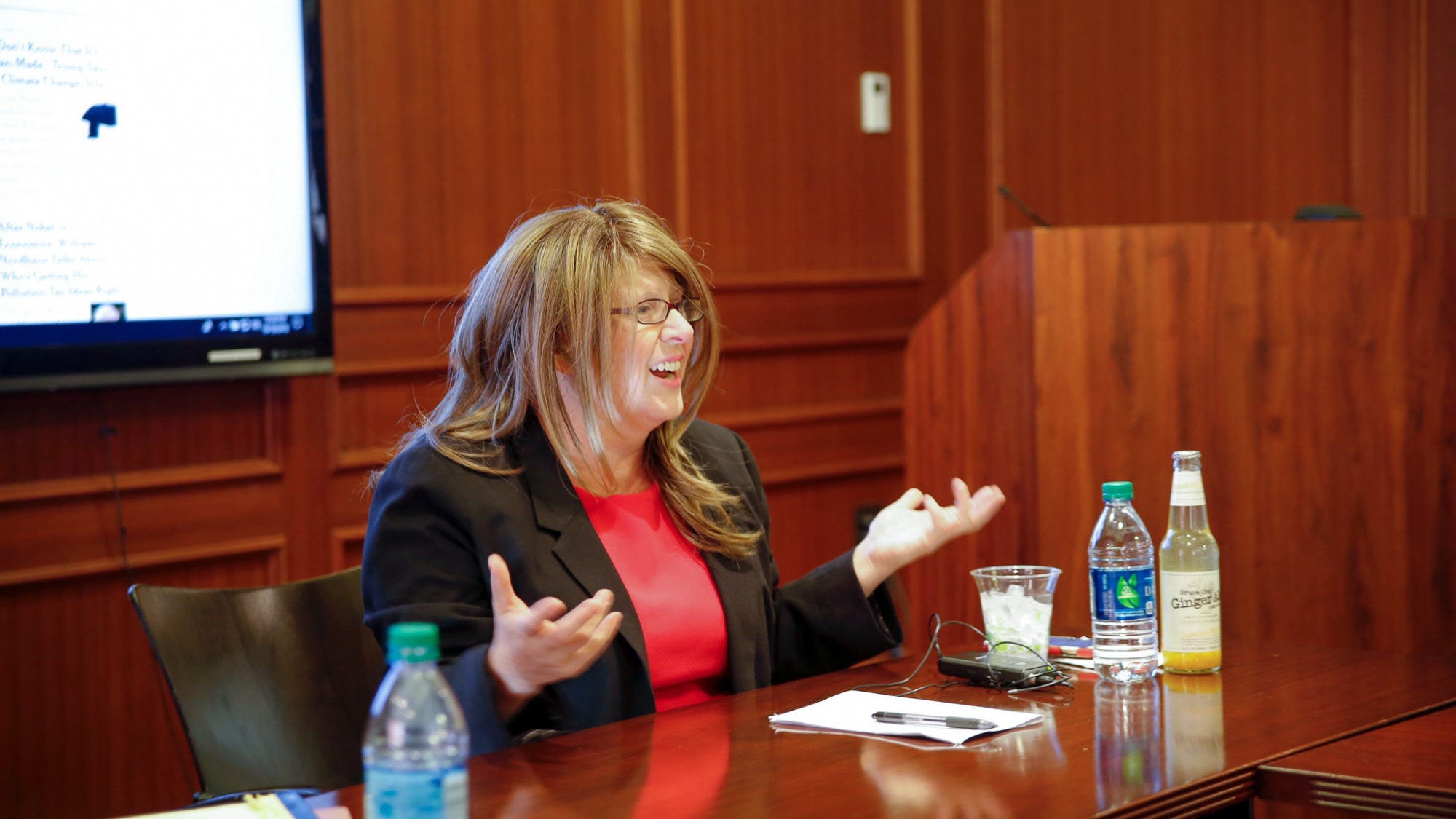Friedman explained how journalists in the past, including herself, had considered the subject of climate change to be a narrow realm of niche interest. However, she quickly discovered at Climatewire that this was far from the reality. Climate change touches on everything. Her bosses sent her all over the world to write about how climate forces are affecting lives in some of the poorest communities of the globe. In her work she was able to explore the politics of developing countries seeking to gain energy access in the age of emissions awareness. At the same time, she remarked, the climate beat includes some of the most fascinating and heated DC and congressional debates.
“We’re not just covering energy and the environment, we’re covering migration; we’re writing about food security; we’re writing about what it means to live in a world where everything from real estate to what happens when we turn off the light switch.”
Friedman, since her hiring as a climate change reporter by The New York Times in 2017, has witnessed and contributed to an overhaul of how climate stories are covered at the paper. Climate change is the first subject area at The Times to have this independent designation that has traditionally been given to geographically defined topics: for example, they have a foreign desk, a metro desk, and a national desk. As a result of this bureaucratic tweak, climate reporting at the paper doesn’t have to compete for attention from editors with health, education, or other stories of different focuses. Friedman discussed how The Times climate change team went from discussing the big ideas on how to tackle the problem at the end of the Obama administration to what she refers to as “writing obituaries on climate policy” in this deregulatory climate of the Trump presidency. “Then Scott Pruitt happened,” she remarked bleakly, referring to the scandal-prone Trump EPA chief, whose antics became “all-consuming and took away… from a lot of policy coverage.”
 The Times climate desk has made great strides to make climate reporting engaging: clicking on the climate tab on their website will lead you to a page of well-written deeply researched stories, many of which are interactive, such as “How Much Hotter is Your Hometown Than When You Were Born?” in which readers plug their hometown, wherever it might be in the world, and their date of birth to see the increase in the number of 90° days and projections for the future.
The Times climate desk has made great strides to make climate reporting engaging: clicking on the climate tab on their website will lead you to a page of well-written deeply researched stories, many of which are interactive, such as “How Much Hotter is Your Hometown Than When You Were Born?” in which readers plug their hometown, wherever it might be in the world, and their date of birth to see the increase in the number of 90° days and projections for the future.
After Friedman’s lecture, she opened the floor to questions from the audience. She discussed prospects for the success of the Paris Climate Deal and Democratic-leaning states’ attempts to keep the United States on the accord’s track, despite President Trump’s decision to withdraw. She expressed optimism, but qualified that unless “Texas or Ohio or other coal rich states” make similar efforts, these plans can only go so far. Overall, Friedman concluded that this is a national-level issue; she explained how the elevation of people formerly considered extreme climate change deniers has led foreign governments to disengage with the United States on this issue until the Trump administration is replaced by a different administration.
